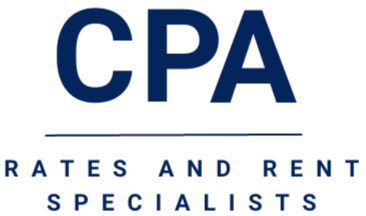Autumn Budget 2024: The Business Rates Shakeup – What It Means for You
- peterw022
- Oct 31, 2024
- 4 min read

Rachel Reeves’ first Budget as Chancellor was bound to be a precarious balancing act. Inheriting a staggering £20 billion deficit from the previous Conservative government, fuelled in part by Covid-era Business Rates reliefs, Reeves faced a difficult challenge: to shore up public finances without overburdening businesses still on the path to recovery after the chaos of 2020-2021. The question is, did she manage it?
In this article, we’re breaking down the good news and the bad news from this Budget for commercial property owners, with one unexpected change that might even affect your children’s school fees. If you’re pressed for time, read on for our essential insights into how this Budget could impact your bottom line – and where CPA can help keep your costs in check.
The Good News
1. Lower Business Rate Multipliers for Key Sectors
The Chancellor made a clear nod to the retail, hospitality, and leisure sectors by committing to permanently lower business rates multipliers starting in 2026. These sectors, particularly impacted by high operating costs and the shift to online shopping, will now benefit from reduced rates on their physical premises.
• Impact: This permanent reduction will ease the burden on physical storefronts, pubs, and leisure facilities, providing long-term financial relief that’s expected to fuel local investment and economic recovery for these heavily taxed sectors.
2. Small Business Multiplier Freeze in 2025-26
In a bid to keep costs stable for SMEs, the government has announced a freeze on the small business multiplier for the next fiscal year. While temporary, this measure should shield small businesses from immediate increases in rates, allowing them to focus on growth and recovery.
• Impact: For small businesses, this means predictability in business rates, enabling them to budget without the fear of escalating costs – at least for the next fiscal cycle.
3. Expanded Relief for Small Businesses and High Street Properties
Alongside the freeze, the Budget introduces a relief package to support high street businesses, reducing rates discounts from 75% to a maximum of 40%, with a cap of £110,000 per business. While this revised relief recognises the ongoing challenges facing small retailers and service providers, the reduction from previous support levels may still leave some high street businesses facing significant financial strain as they work to recover.
• Impact: The capped relief will offer financial support, helping businesses in high-cost areas maintain a foothold and invest in revitalising their operations without being crushed by rates.
The Bad News
1. Duty to Notify: A Closer Watch on Property Changes
The “Duty to Notify” is a new obligation coming into force in April 2026, requiring businesses to proactively report material changes in their premises. Gone are the days when you could install a mezzanine or build an extension without it affecting your rates bill for years. Under this new rule, major changes must be disclosed to the authorities as soon as they are made, with non-compliance resulting in penalties and rates arrears.
• Impact: This shift places more administrative responsibility on business owners, who will need to closely monitor and report any structural changes that could affect their valuation. CPA is here to help ensure that if you’re required to report a change, the resulting valuation accurately reflects your property’s updated value – no surprises from the VOA showing up unexpectedly.
2. Employer NICs Rise: Impact on Operational Budgets
To fund increased public spending, the Chancellor has implemented a rise in employer National Insurance contributions, moving up 1.2 percentage points. While this doesn’t directly impact business rates, it affects overall operational costs for employers, particularly those with larger workforces.
• Impact: Employers will face increased staffing costs, which will impact hiring and payroll budgets, particularly in labour-intensive sectors like retail and hospitality that already struggle with high operating costs.
The Surprise Twist: Private School Reliefs Cut
In a surprising turn that could affect a wide range of business owners, the Chancellor announced the removal of business rates relief on private schools, resulting in additional costs for these institutions. For parents with children enrolled in private education, this may translate to increased school fees as schools attempt to offset their own rising rates.
• Impact: If you’re a business owner with children in private education, expect that this change could be passed down in the form of higher tuition fees. It’s a development that few anticipated, and one that will likely put additional pressure on family budgets.
Moving Forward: Where CPA Can Help
The Autumn Budget 2024 has set a path that blends relief with increased scrutiny. With permanent reductions for some sectors, but new obligations like the Duty to Notify, navigating business rates just became more complex. At CPA, we specialise in guiding clients through these changes, ensuring accurate valuations, compliance, and that you’re only paying what’s fair. For more on how CPA can support your business through these changes, contact us today – we’re here to make sure you’re not caught out by any surprises in this evolving landscape.
